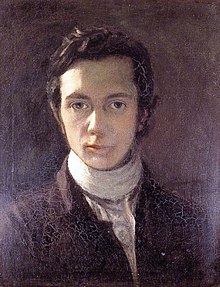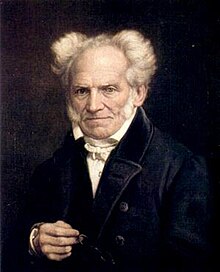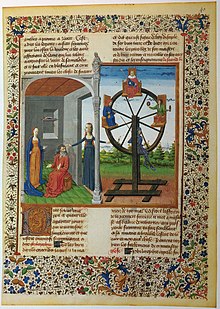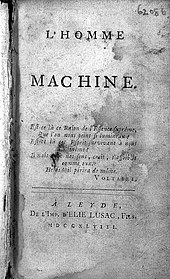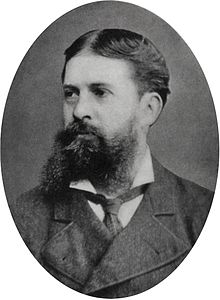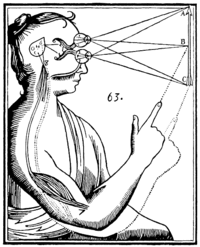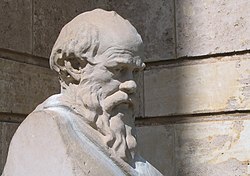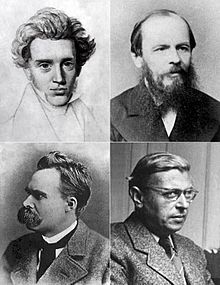
A. C. Grayling
Master of the New College of the Humanities and a Supernumerary Fellow of St Anne's College, Oxford
18 episodes
Appears in multiple episodes with: Melissa Lane, Janet Radcliffe Richards, Julian Baggini, Angie Hobbs
Covers topics in categories such as:
Bertrand Russell
Melvyn Bragg and his guests discuss the influential 20th-century British thinker Bertrand Russell, widely regarded as one of the founders of Analytical philosophy.
6 December 2012
Also featuring: Mike Beaney, Hilary Greaves
PhilosophyNobel laureates in LiteratureBritish philosophers of languageGeorgistsEnglish political writersFree love advocatesSet theoristsAristotelian philosophersWriters about religion and scienceJerusalem Prize recipientsFellows of Trinity College, CambridgeEnglish logiciansPhilosophers of mathematicsBritish historians of philosophyEmpiricistsOntologistsMetaphysics writersBritish political philosophersFellows of the Royal SocietyMetaphilosophersTheorists on Western civilizationBritish ethicistsPhilosophers of literatureBritish free speech activists20th-century English philosophersAnalytic philosophersEnglish humanistsRhetoric theoristsAtheist philosophersEnglish political philosophersEnglish anti-fascistsEnglish people of Scottish descentPhilosophers of historyEnglish agnostics20th-century atheistsConsequentialistsEnglish socialistsPhilosophers of social scienceBritish philosophers of religionPresidents of the Aristotelian SocietyLogiciansPhilosophers of lawPhilosophers of sexuality19th-century English mathematiciansCritics of work and the work ethicSecular humanistsPhilosophers of technologyPhilosophers of economicsWriters about globalizationBritish philosophers of educationBritish philosophers of culture, English pacifistsBritish philosophers of logicCritics of the Catholic ChurchPeople from MonmouthshireAlumni of Trinity College, CambridgeLinguistic turnPhilosophers of loveEuropean democratic socialistsBritish consciousness researchers and theoristsWriters about activism and social changeEnglish Nobel laureatesMembers of the Order of MeritEnglish prisoners and detaineesUtilitariansIntellectual historians, University of Chicago facultyEnglish scepticsBritish critics of ChristianityEnglish people of Welsh descentUniversal basic income writersBritish philosophers of mind19th-century English philosophersBritish critics of religionsAcademics of the London School of Economics, British philosophers of science19th-century atheistsUniversity of California, Los Angeles facultyAnti-nationalists20th-century English mathematiciansEnglish essayistsFreethought writersBritish atheism activistsWriters about communism19th-century English essayistsEnglish male non-fiction writersLogic
Melvyn Bragg and his guests discuss the history of logic, the study of reasoning and argument.
21 October 2010
Also featuring: Peter Millican, Rosanna Keefe
William Hazlitt
Melvyn Bragg and guests Jonathan Bate, Uttara Natarajan and AC Grayling discuss the life and works of William Hazlitt.
8 April 2010
Also featuring: Jonathan Bate, Uttara Natarajan
Schopenhauer
Melvyn Bragg and guests discuss the pessimistic philosophy of Arthur Schopenhauer and his extraordinary influence.
29 October 2009
Also featuring: Beatrice Han-Pile, Christopher Janaway
PhilosophyGerman philosophers of artGerman philosophers of scienceGerman political philosophers19th-century German writersMetaphilosophersGerman eugenicists19th-century German philosophersTheorists on Western civilizationSimple living advocatesPhilosophers of literatureGerman idealistsPhilosophers of logicLogiciansPhenomenologistsPhilosophy writersCritical theoristsGerman philosophers of mind, German philosophers of religionAcademic staff of the Humboldt University of Berlin19th-century German male writersAphoristsGerman philosophers of languagePhilosophers of psychologyUniversity of Göttingen alumniGerman critics of ChristianityGerman philologistsGerman philosophers of culture19th-century German essayists19th-century atheistsCritics of religionsAtheist philosophersGerman male essayistsCritics of JudaismOntologistsPhilosophers of loveGerman writers on atheismGerman ethicists, German philosophers of educationGerman monarchistsPhilosophers of pessimismGerman epistemologistsAnti-natalistsGerman philosophers of historyGerman male non-fiction writersGerman logicians, Kantian philosophersThe Consolations of Philosophy
Melvyn Bragg discusses Boethius’ Consolation of Philosophy and asks whether philosophy should lead us toward consolation or lead us from it.
1 January 2009
Also featuring: Melissa Lane, Roger Scruton
Materialism
Melvyn Bragg and guests discuss Materialism– the philosophical idea that matter constitutes all that exists.
24 April 2008
Also featuring: Caroline Warman, Anthony O'Hear
Common Sense Philosophy
Melvyn Bragg and guests discuss 18th century common sense philosophy which involves the most profound questions about human knowledge we are capable of asking.
21 June 2007
Also featuring: Melissa Lane, Alexander Broadie
Mill
Melvyn Bragg discusses the 19th century political philosopher John Stuart Mill and his treatise On Liberty which is one of the sacred texts of liberalism.
18 May 2006
Also featuring: Janet Radcliffe Richards, Alan Ryan
PhilosophyBritish political philosophersHonorary Fellows of the Royal Society of EdinburghEnglish libertariansBritish philosophers of languageConsequentialistsInfectious disease deaths in FranceEnglish socialistsUtilitariansEnglish suffragistsTheorists on Western civilizationBritish ethicistsBritish socialistsEnglish political writersLogiciansEnglish feminist writers, English feministsBritish free speech activistsPhilosophers of sexualityPhilosophy writersBritish classical liberal economistsPhilosophers of economicsBritish social liberals19th-century English non-fiction writersFellows of the American Academy of Arts and SciencesPhilosophers of cultureRectors of the University of St AndrewsPhilosophers of psychologyBritish philosophers of mindEnglish logicians19th-century English philosophersBritish philosophers of logicEnglish autobiographersAnglo-ScotsUK MPs 1865–1868Empiricists19th-century English writersVoting theoristsEuropean democratic socialistsEnglish essayistsEnglish political philosophers19th-century English essayistsEnglish male non-fiction writersEnglish non-fiction writersPhilosophers of scienceEnglish people of Scottish descentPhilosophers of historyEnglish republicansScholars of feminist philosophyEnglish agnosticsBritish male essayistsPragmatism
Melvyn Bragg discusses the American philosophy of pragmatism which purported that knowledge is only meaningful when coupled with action.
17 November 2005
Also featuring: Julian Baggini, Miranda Fricker
Marx
Melvyn Bragg discusses Karl Marx who once said that while other philosophers wanted to interpret the world, he wanted to change it. And he changed the world with his Communist Manifesto.
14 July 2005
Also featuring: Francis Wheen, Gareth Stedman Jones
PhilosophyEpistemologistsCritics of political economySocialist feministsHumboldt University of Berlin alumniMaterialistsUniversity of Jena alumniGerman political philosophersGerman anti-capitalists, German socialist feminists, Jewish communistsFellows of the Royal Society of Arts19th-century German philosophersTheorists on Western civilizationStateless peoplePamphleteersMarxist theoristsPhilosophers of lawCritics of work and the work ethicSocial philosophersPhilosophers of technologyMembers of the International Workingmen's AssociationPhilosophers of economicsWriters about religion and scienceWriters about globalizationUniversity of Bonn alumniPhilosophers of culturePhilosophers of educationPhilosophical anthropologyGerman revolutionariesAnti-consumerists19th-century atheistsCritics of religionsAtheist philosophersCritics of JudaismEconomic historians, German sociologistsOntologistsPhilosophers of mindJewish socialistsMetaphysiciansGerman writers on atheismAnti-nationalistsGerman Marxist writersPhilosophers of religionBurials at Highgate CemeteryWriters about activism and social change19th-century German historiansPhilosophers of sciencePhilosophers of historyGerman male non-fiction writersAnti-imperialistsAbelard and Heloise
Melvyn Bragg discusses the story of Abelard and Heloise, a medieval tale of literature and philosophy, love and scandal in the high Middle Ages.
5 May 2005
Also featuring: Henrietta Leyser, Michael Clanchy
The Mind/Body Problem
Melvyn Bragg discusses the history of thought about the mind/body problem in philosophy. Does the mind rule the body or the body rule the mind? And where does the mind reside?
13 January 2005
Also featuring: Julian Baggini, Sue James
Heroism
Melvyn Bragg discusses what defines a hero, and their place in classical society. Nietzsche, the Romantics, Renaissance idealism and classical tragedy are brought to bear on the age old heroic ideal.
6 May 2004
Also featuring: Angie Hobbs, Paul Cartledge
Duty
Melvyn Bragg discusses duty; the concept that others have a claim over our actions has been at the heart of the history of civilised society.
13 November 2003
Also featuring: Angie Hobbs, Annabel Brett
The Examined Life
Melvyn Bragg discusses what self-examination through philosophy can teach us about living our lives, and where it ranks in our quest for self-knowledge alongside science, the arts and religion.
9 May 2002
Also featuring: Janet Radcliffe Richards, Julian Baggini
Happiness
Melvyn Bragg discusses whether 'happiness' means living a life of pleasure or of virtue. How much does this ancient philosophical debate still define what it means to be happy today?
24 January 2002
Also featuring: Angie Hobbs, Simon Blackburn
Existentialism
Melvyn Bragg discusses existentialism, a twentieth century philosophy of everyday life concerned with the individual, and his or her place within the world.
28 June 2001
Also featuring: Christina Howells, Simon Critchley
Utopia
Melvyn Bragg discusses the history of the concept of Utopia, examines real and fictional examples, and explores why we are as enthralled as ever by the idea of it.
7 October 1999
Also featuring: John Carey

